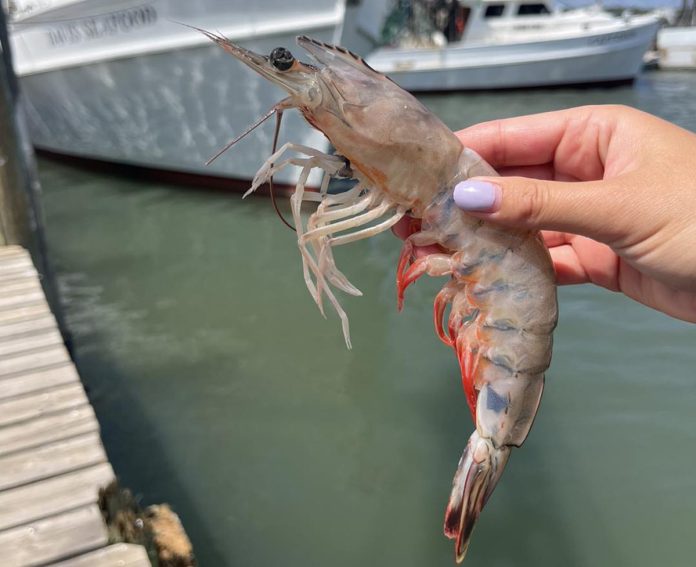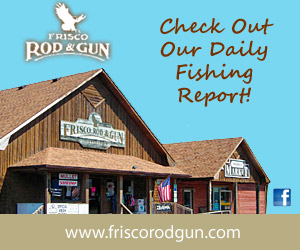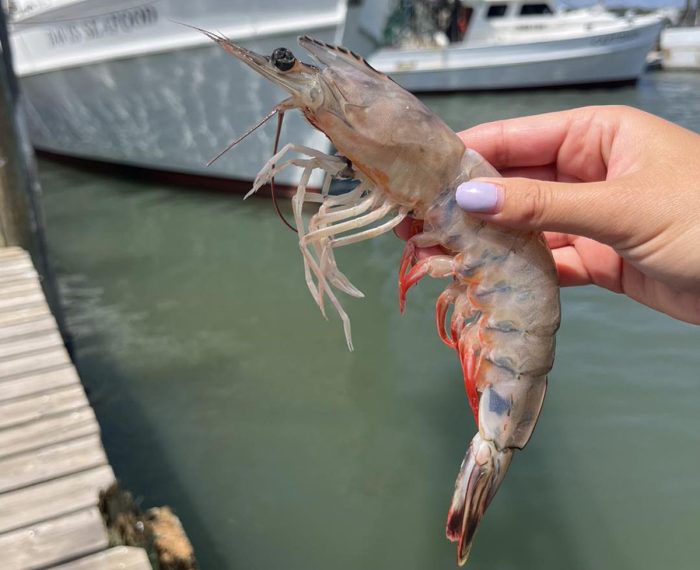
From CoastalReview.org
Foreign shrimp imports are overwhelming the country’s inventories of shrimp and driving market prices for locally sourced shrimp to record lows, prompting widespread calls from elected officials and organizations throughout southern Atlantic and Gulf Coast states for the federal government to declare a fishery resource disaster.
Governors of coastal states from North Carolina to Florida to Texas are being pressed to ask U.S. Commerce Secretary Gina Raimondo to determine a fishery resource disaster for the South Atlantic and Gulf of Mexico shrimp fishery.
In what one North Carolina coastal county’s board of commissioners refer to as an “unprecedented catastrophic crisis,” shrimpers are struggling to maintain operations because they’re making substantially less for their catch while paying historically high fuel prices and other inflation-driven costs.
Shrimpers are also being forced to dock their freezer boats, or vessels with onboard freezers, because they can’t move their product in a market flooded with frozen shrimp from overseas.
Their recourse is turning largely to selling their catch dockside to local clientele and restaurants and seafood markets that conscientiously serve and sell locally sourced seafood.
Last week, the American Shrimp Processors Association, or ASPA, filed anti-dumping petitions on frozen warmwater shrimp from Ecuador and Indonesia. Dumping is the import of goods below normal value.
The group also filed countervailing duty petitions, or import taxes created to offset an exporting country’s subsidies, on frozen warmwater shrimp from Ecuador, India, Indonesia, and Vietnam.
Imports from those countries last year exceeded 1.5 billion pounds — more than 90% of all U.S. shrimp imports — and $6.6 billion, according to the association.
“If successful, the tariffs should help discipline imports and provide a vital lifeline to a domestic industry that is desperately fighting for its survival,” the association said.
In late August, the Southern Shrimp Alliance sent letters to Gov. Roy Cooper and the governors of South Carolina, Georgia, Florida, Alabama, Mississippi, Louisiana and Texas asking them to consider submitting a regionwide request for a fishery resource disaster determination.
Congressman Vicente Gonzalez Jr., D-Texas, took a similar request directly to the Commerce Department on Sept. 29, asking Raimondo to initiate a review and fishery resource disaster determination for fisheries on the Gulf.
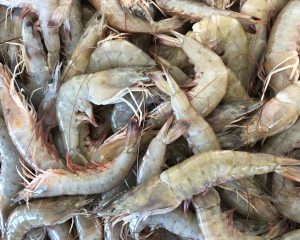
Under the federally enacted Fishery Resource Disasters Improvement Act of 2022, fishers may be entitled to financial assistance when a disaster is determined, including a change “that results in significant loss of access to the fishery resources … for a substantial period of time and results in significant revenue loss … due to an allowable cause.”
Cooper’s press office did not respond to a request for comment.
The governor is starting to get similar calls to take action from elected officials representing North Carolina’s coastal areas.
The Onslow County Board of Commissioners is among the latest of the state’s coastal counties to join a growing chorus of local elected officials asking the federal government to step in.
A resolution the board unanimously passed during a mid-October meeting states, “The consequences of the inundation of imported shrimp into our markets have caused significant revenue loss and loss of access to the shrimp fishery resource itself, for small family-owned fishing businesses and other supporting businesses.”
Boards of commissioners in Pamlico and Craven counties adopted similar resolutions earlier this fall.
“This is important for the coastal communities in North Carolina to step out and share this because, as the resolution has stated, it is having a major impact on the local shrimpers and fishermen here and the biggest (impact) is by the time they finish loading up the shrimp boats to head out they’re already way behind on what they’re going to make,” Onslow Commissioner Chairman Tim Foster said at the board’s Oct. 16 meeting. “What this is doing is driving down the cost of the shrimp and it is on the verge of eliminating the local businesses in our areas of Sneads Ferry and Swansboro.”
Davis Seafood Inc. in Sneads Ferry has been moving most of its shrimp locally, according to Joseph Davis.
And though the family-owned business has been able to sell what it has brought in locally, Davis Seafood still feels the pinch of low shrimp prices not accounting for high fuel costs.
“It’s a very unlevel playing field that we have to deal with,” he said in a telephone interview. “The overall price does affect us. We did freeze a lot of shrimp this summer when the boats were working in Pamlico Sound. We probably froze more shrimp than usual.”
Davis said he has a brother-in-law who operates a freezer boat, one that probably hasn’t been out to catch shrimp in about two months because of the lack of demand, he said.
NC Catch Board of Directors Chair Dr. Barbara Garrity-Blake said the levels of shrimp imports to the U.S. are “just unprecedented.”
“They’re just off the charts right now,” she said.
“We’ve essentially become a dumping ground for imported shrimp, especially from China. Wholesale prices right now are so low and fuel prices are high so it’s really hard to make the numbers work,” Garrity-Blake continued. “Right now, across the United States, our freezer operations are filled with shrimp because this dumping has been going on so long our local wholesalers can’t even move their shrimp. There are more commercial fishermen that are selling directly to consumers. But, that doesn’t work for everybody. Not everybody’s set up to do that.”
NC Catch works with local Catch programs aimed at educating the public about locally sourced seafood.
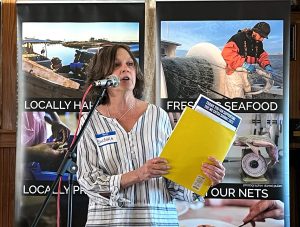
The organization promotes the benefits of eating local seafood, touting everything from a difference in taste to the fact that seafood fished from U.S. waters is not pumped full of preservatives needed to survive being shipped from regions thousands of miles away.
“Think about the carbon footprint if nothing else,” Garrity-Blake said. “All that fuel requires getting that seafood from one side of the planet to the other when we have the best product right here, right here in the Pamlico Sound, right here in the Core Sound that was caught last night, fresh, 100% organic, no chemicals.”
Seafood imports do not need to be completely shuttered altogether because, in order to meet national demand, some level of imports is needed, she said.
“What we need to do is strike a balance,” Garrity-Blake said.
She said educating consumers across the country is key to ultimately turning the tide on reducing the amount of shrimp imports coming into the country.
“We believe that the consumers are the sleeping giant and all of those consumers have the power to turn a lot of this around,” Garrity-Blake said. “Our message to consumers is to ask where your seafood comes from and then demand that you get local seafood and eventually restaurants, the markets, are going to have to meet that demand. We like to stress to consumers that their really only access to local seafood is through commercial fishermen, unless they’re fortunate enough to have the means to travel to the coast, to have a boat, to be really good at say, casting a net.”
She said the problem is “of our own making” because the U.S. government has heavily invested in economic projects in developing countries where cheaper labor costs undercut market prices on home soil.
Bradley Styron of Quality Seafood in Cedar Island said fishermen can’t maintain the lifestyle they’re accustomed to “on third-world wages.”
“Around here people are having to do whatever they can to try to make it,” he said. “Fuel is high. Shrimp are cheap. Before the imports came along we didn’t have this problem. It ought to be worth them making some phone calls to their senators and legislators. You don’t have to be a rocket scientist to figure this out. They want a decent product and the only way to have that is through a strong commercial fishing industry.”



